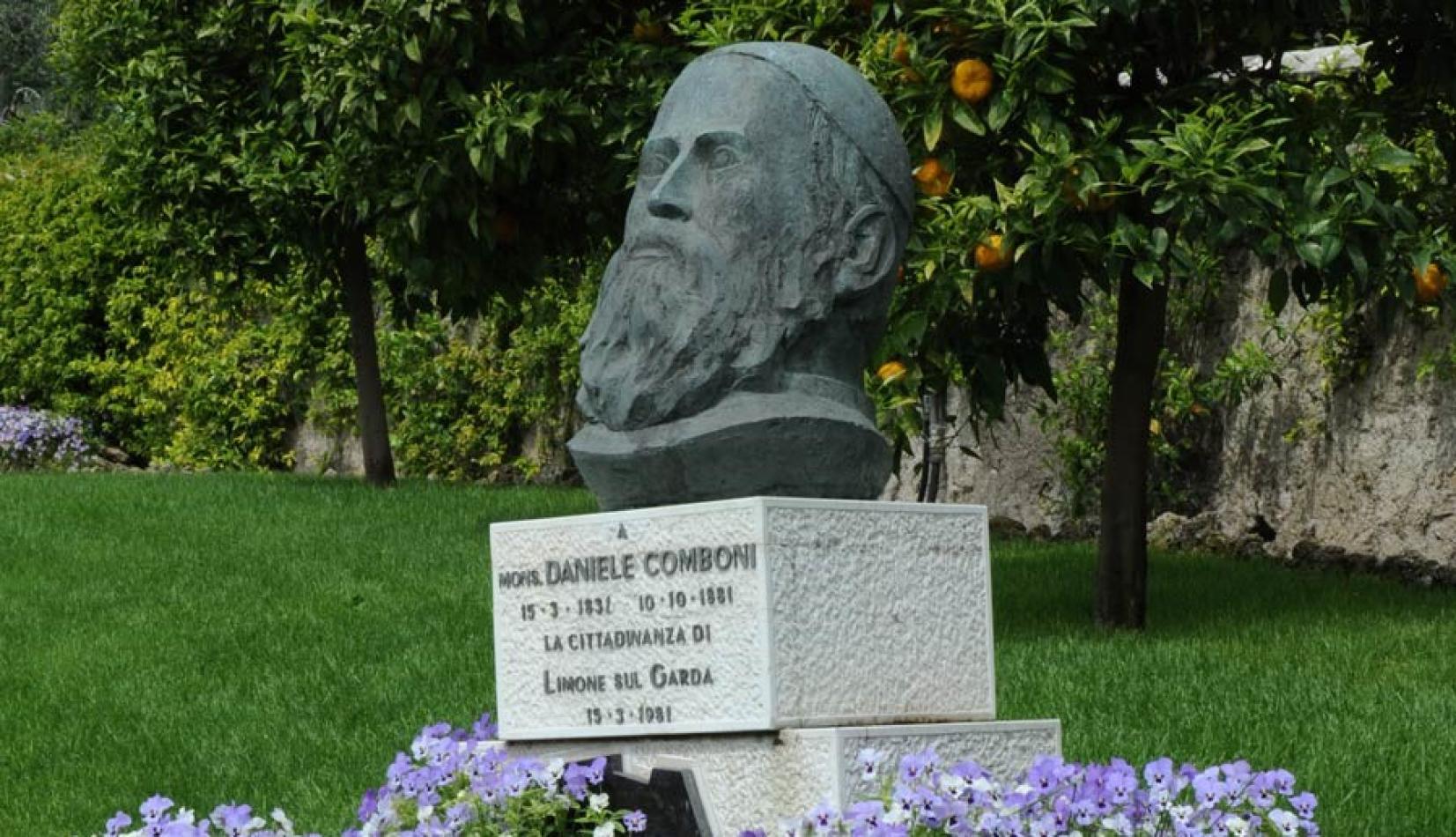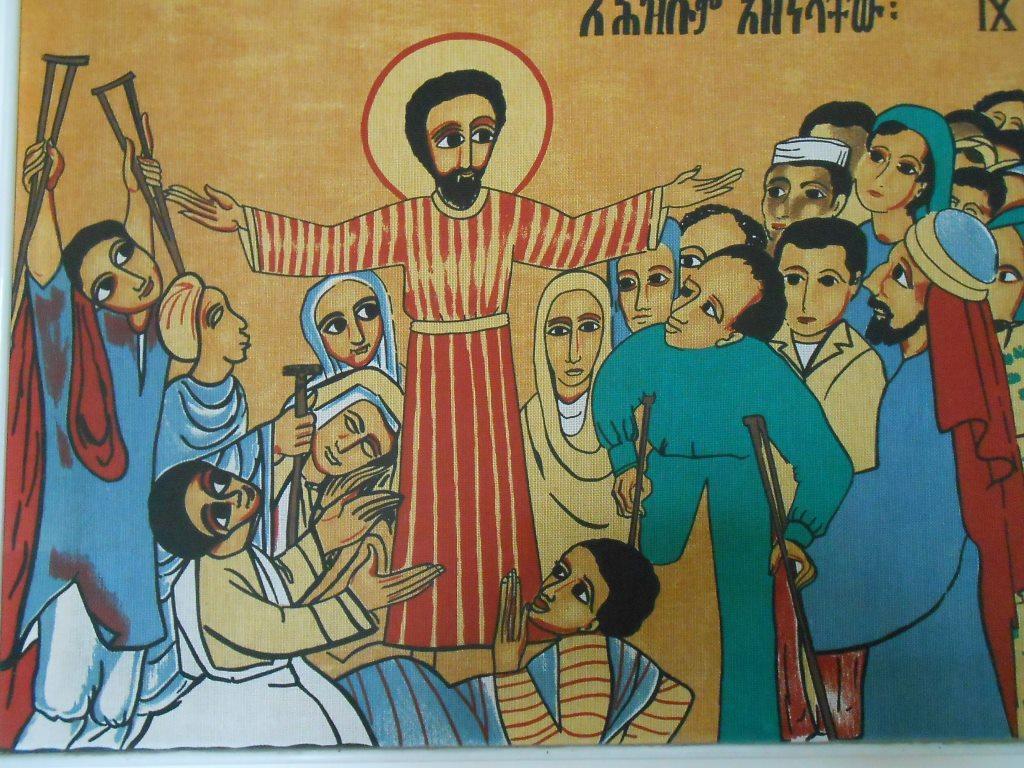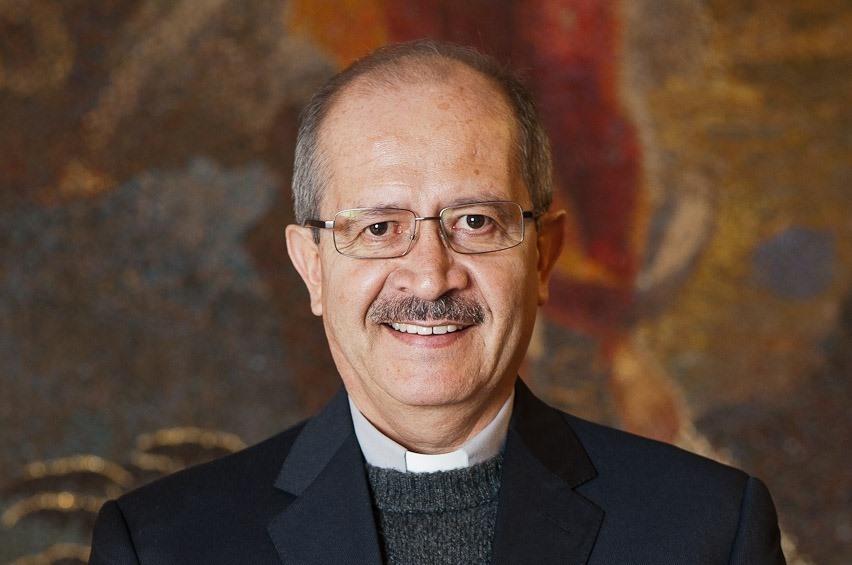Daniel Comboni
Comboni Missionaries
Institutional area
Other links
Newsletter
«It is with a profound feeling of joy and gratitude that we greet you on the occasion of the Solemnity of Saint Daniel Comboni. This celebration reminds us that we must keep both the “memoria” (anamnesis) both of the Founder, lived with immense passion, and his death, accepted as a gift of love for the poorest and most abandoned, in such a way that the life and mission of every spiritual son and daughter of his may truly become “love incarnate” in our missionary service.» (The General Council)
A Plan, so ancient, yet so new
«The Spirit of the Lord has been given to me, For the Lord has anointed me
He has sent me to bring the Good News to the poor; To bind up hearts that are broken,
To proclaim liberty to captives, Freedom to those in prison,
To proclaim a year of favour from the Lord.» (Isaiah 61,1-2a)
«The Catholic, who is used to judging things in a supernatural light, looked upon Africa, not through the pitiable lens of human interest, but in the pure light of faith; there he saw an infinite number of brothers who belonged to the same family as himself with one common Father in heaven […] then, carried away by the impetus of that love set aflame by the divine light on Calvary Hill, when it came forth from the side of the Crucified One to embrace the whole human family, he felt his heart beat faster.» (Writings, 2742)
Dear Confreres,
Pax et Bonum in the Lord Jesus, the missionary of the Father!
It is with a profound feeling of joy and gratitude that we greet you on the occasion of the Solemnity of Saint Daniel Comboni. This celebration reminds us that we must keep both the “memoria” (anamnesis) both of the Founder, lived with immense passion, and his death, accepted as a gift of love for the poorest and most abandoned, in such a way that the life and mission of every spiritual son and daughter of his may truly become “love incarnate” in our missionary service.
This memorial of the heavenly birth (dies natalis) of our Holy Founder challenges us to deepen his charism, as the living heritage that must animate us in matters of mission in the world of today as “missionary disciples” of Jesus, in a Combonian manner.
Recently, we recalled the 160th anniversary of the founding charismatic experience lived by Comboni on 15 September 1864 during the triduum in preparation for the beatification of Margaret Mary Alacoque, as he prayed at the tomb of Saint Peter in Rome. It was an experience that led him to conceive the Plan for the Regeneration of Africa. That Plan is not just a text, a mere operative strategy or a dream to cling to but the fruit of inspiration “from above”, from the Holy Spirit, that is, that “called” Comboni and sent him to proclaim the Gospel of Jesus to the poorest and abandoned.
Thanks to his great passion for the salvation of the Africans and his missionary enthusiasm, by his life he “gave flesh” to that Plan. After him, his missionary men and women – his authentic “sons and daughters” who make his dream their own – have continued to “incarnate” that Plan with their life, their generosity, their spirit of sacrifice and their apostolic courage. We continue to do this today, while broadening and updating the original inspiration of the Founder no longer in Africa alone but in every continent, with the same spirit (charism), in the world of our time, still inhabited by persons and peoples who suffer, who are marginalised, exploited, vilified, the victims of atrocious injustice and even killed. In recent months, the situation in Sudan has become particularly dramatic, due to a conflict that seems to have no end.
We are more than ever “heirs” to a real treasure, “inspired and living”. It does us good to again take to heart the main insights of that Plan. We would like to list some of them.
First of all, the conviction that the evangelisation of Africa must be realised by the Africans themselves, that they must not be mere spectators but become the protagonists of a new history of their own of liberation and dignity.
Second, the heartfelt appeal addressed to the whole Church to commit itself in its entirety to promoting the evangelization of Africa, calling it to gather together and commit all the missionary forces existing in the world of that time and inviting them to cooperate in a true synodal spirit.
Thirdly, the vision of mission as essentially the binomial of “The proclamation of the Gospel” and “human promotion”. A century would pass before the Church convoked the Second Vatican Council (1962-65) and Pope Paul VI announced the regular convocation of the Synod of Bishops (1965). The third Synod, in 1971, produced a powerful document capable of sustaining the living action of the Church regarding the problems of justice and peace on a global level. The following statement of the bishops is splendidly courageous and prophetic: «Action on behalf of justice and participation in the transformation of the world fully appear to us as a constitutive dimension of the preaching of the Gospel, or, in other words, of the Church's mission for the redemption of the human race and its liberation from every oppressive situation» (Justice in the World, 6).
We must not fail to grasp the prophecy, the actuality or the urgency of the missionary proposal formulated in the Plan, characterised by a true missionary spirit and strategies that are valid for our time and our humanity of today. It is not unjustified to see in the vision of Comboni a veritable harmony with the thematic of the Synod on Synodality taking place in Rome at this time and which we, the children of Comboni today, are called to make our own.
However, to discover the richness of the vision of the Plan and make it operational in our lives, we must adopt the attitude of deep prayer and docility to the Spirit that the Founder had. We ask the Holy Spirit to descend upon us as He descended upon him, enabling him to “See Africa’s hour” and to feel within himself an irrepressible desire to dedicate himself entirely as a “free gift” to a new African mission that would respond to the urgencies and challenges of his time.
However, to discover the richness of the vision of the Plan and make it operational in our lives, we must adopt the attitude of deep prayer and docility to the Spirit that the Founder had. We ask the Holy Spirit to descend upon us as He descended upon Comboni, enabling him to “see Africa’s hour” and to feel within himself an irrepressible desire to dedicate himself entirely as a “free gift” to a new African mission that would respond to the urgencies and challenges of his time.
Ultimately, it is a question of always having the courage to start from the Lord, to be driven by his Spirit, without ever falling into the temptation of self-referentiality, which not only impoverishes the mission, but also destroys it, just as the Rules of 1871 remind us: «Completely emptied of self and deprived of every human comfort, the Missionary to Africa works only for his God, for the most abandoned peoples in the world and for eternity » (Rules of the Institute for the Missions of Africa, 1871; Writings 2702).
It is obvious that the Plan conceived by Comboni, before becoming a written document, was also a dream and a passion, an uncontainable force in his heart that overflowed in charity. We can say that the Plan is the expression of a love so genuine and heartfelt that it became a source of mission.
We too need to have such love! Let us ask ourselves: what passions drive me to live the mission today? How does my heart leap when I encounter injustice, oppression, cold indifference, and the many other evils of our society today? In the quotidian of my life, is there still space, time and openness to God for His Spirit to enter my heart and sustain it? To what extent does my love for the poor oblige me to give myself completely to them, arousing in me such a strength as to transform my life into a gift of love?
In this “missionary month” of October, we have the opportunity to follow and live the Synod of Bishops. Let us take advantage of these experiences of ecclesial communion, in sincere listening, in fraternal welcome and in walking together, aware that the Spirit who inspired Comboni can also inspire us and help us to overcome our weaknesses and produce fruits that are an expression of the perennial concern that God has for all his sons and daughters, especially the weakest and suffering.
We ask for our Comboni Family the gift of being filled with a love that becomes real, as a concrete response to the challenges of today's mission, always ready to make common cause with the poor.
Best wishes to everyone on this joyful solemnity!
Rome, 10 October 2024
The General Council




